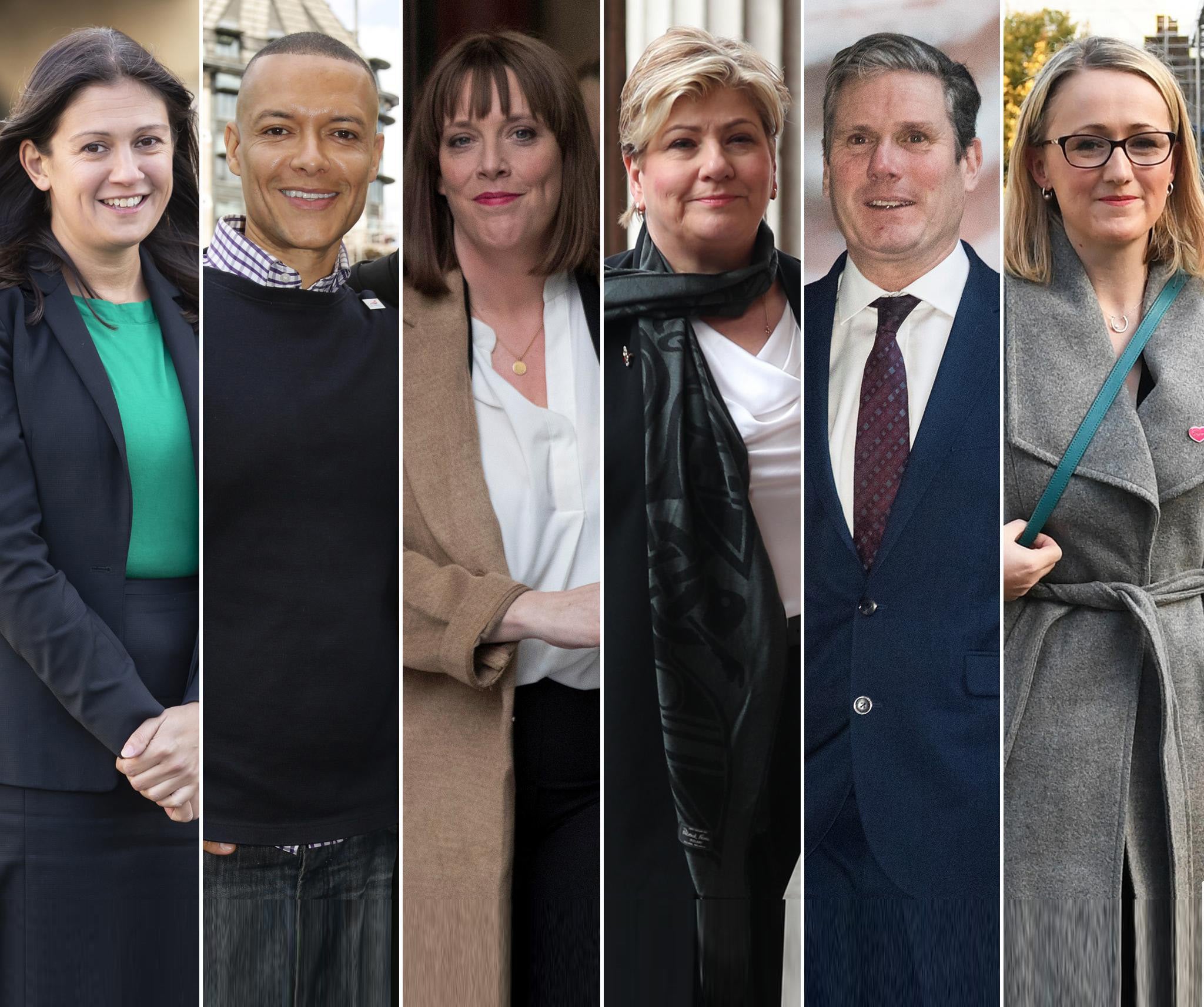Why Labour should use an all-women shortlist to choose its next leader
Labour is the only major party never to have had a non-interim woman leader. This calls for an intervention

Your support helps us to tell the story
From reproductive rights to climate change to Big Tech, The Independent is on the ground when the story is developing. Whether it's investigating the financials of Elon Musk's pro-Trump PAC or producing our latest documentary, 'The A Word', which shines a light on the American women fighting for reproductive rights, we know how important it is to parse out the facts from the messaging.
At such a critical moment in US history, we need reporters on the ground. Your donation allows us to keep sending journalists to speak to both sides of the story.
The Independent is trusted by Americans across the entire political spectrum. And unlike many other quality news outlets, we choose not to lock Americans out of our reporting and analysis with paywalls. We believe quality journalism should be available to everyone, paid for by those who can afford it.
Your support makes all the difference.Barring a weekend of extremely persuasive phone calls on the part of Clive Lewis and Emily Thornberry, the Labour Party will go into next week with four candidates to become its next leader.
Lisa Nandy, Rebecca Long Bailey and Jess Phillips have already joined Keir Starmer in the next round of the process, having cleared the threshold of 22 MP and MEP nominations. They move on to the next stage, where they must garner the backing of Constituency Labour Parties and affiliated societies.
Unlikely to make the cut now, Thornberry is struggling on seven endorsements, with Lewis trailing on just four.
With 63 nominations, Starmer is apparently the clear favourite among Labour MPs. Initially the one to beat, Long Bailey has struggled to outflank her more moderate rivals, and YouGov polling had Starmer winning with a 61% vote share to 39% against the shadow business secretary in a hypothetical head-to-head. A Nandy victory would be a shock, while Phillips will likely struggle to build a case for abandoning Corbynism that can win over the membership.
But if Starmer does become Jeremy Corbyn’s successor on 4 April, he will represent another forlorn extension of the party’s long wait for a female leader. The party’s mental block on this front is real – but it also reflects a wider problem with how representation is treated.
In society at large, encouraging genuine diversity must be an affronting, disruptive process. Repeating practices which have consistently delivered the same result will not change anything. To bring about change, the beneficiaries of institutional inequality of opportunity must, for a time, be correctively sidelined.
Despite major upheaval at backbench level, the same holds true in the Labour Party. Since Labour is still the only major British party never to have had a non-interim female leader, isn’t that time now for Labour?
The party has long acknowledged parliament’s gender problem, championing female MPs using the stimulant of all-women shortlists (AWS) for candidate selection. Passed at conference in 1993, the method was instrumental in delivering 101 women as Labour parliamentarians in 1997, even though it was declared in breach of the Sex Discrimination Act a year earlier.
While AWS weren’t deployed for Blair’s 2001 victory, a new act in 2002 allowed parties to use them for parliamentary, European, devolved assemblies and most local government elections.
Today, Labour’s National Executive Committee remains “committed to upholding the principle of affirmative action for women”, and is stoic in the face of pushback; in 2014, the Cynon Valley CLP went “on strike” to protest against the imposition of an AWS after Ann Clwyd’s proposed retirement. (Clwyd eventually u-turned, winning reselection on an all-female ballot.)
The party has stood firm before, and will continue to do so beyond the 2019 election milestone of returning 51% women MPs to parliament. The NEC’s language has also been updated to include trans women – it is by no means a wholly inflexible institution.
But even if one of Long Bailey, Phillips, Nandy or Thornberry are victorious, the culture surrounding the leadership debate seems an intangible barrier to sustained diversity, reflecting beliefs which equate leadership, relatability, competence and – crucially – electability with maleness.
When you hear that Starmer is more “prime ministerial” than his rivals, consider Labour’s available reference points. Despite her obvious failings, Theresa May arguably suffered from a similar bias – look how her tone and wooden manner were replaced by the brashness, bluster and “likability” of an unapologetically vulgar male archetype.
There is little doubt that an AWS at the highest level of the Labour party would provoke controversy, but the party’s backbench precedents work in its favour – its diversity push continues to shame the ruling Conservatives. Despite their record two female prime ministers, the Tories selected women candidates in just 24% of their 365 victorious seats in December, the lowest portion of any party except the DUP.
In the creative industries in particular, all-female shortlists are still a radical proposal. But to demand more of the Labour Party is a privilege bestowed upon its movement. The party of pioneering constitutional reform, anti-elitism and now a majority female parliamentary party must now redress its problem at the top.
Given the range and quality of the current field, sidelining male hopefuls through an AWS may not be necessary. But those who would argue against it fail to recognise the structural inequality of the current system, suggesting that women would be given a leg-up, rather than men brought down to a level playing field.
As a device which has brought such radical improvement to the Labour’s parliamentary makeup, this should now be considered for every level of the party’s structures. Because until it has elected a woman at every level, Labour cannot truly call itself a party of the people.
Join our commenting forum
Join thought-provoking conversations, follow other Independent readers and see their replies
Comments